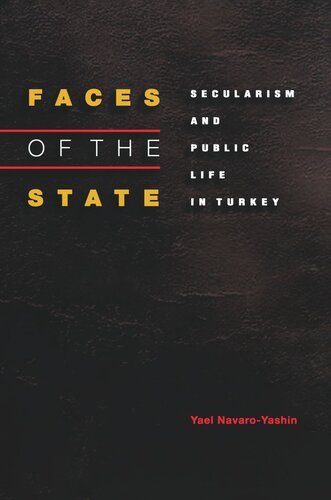

Most ebook files are in PDF format, so you can easily read them using various software such as Foxit Reader or directly on the Google Chrome browser.
Some ebook files are released by publishers in other formats such as .awz, .mobi, .epub, .fb2, etc. You may need to install specific software to read these formats on mobile/PC, such as Calibre.
Please read the tutorial at this link: https://ebookbell.com/faq
We offer FREE conversion to the popular formats you request; however, this may take some time. Therefore, right after payment, please email us, and we will try to provide the service as quickly as possible.
For some exceptional file formats or broken links (if any), please refrain from opening any disputes. Instead, email us first, and we will try to assist within a maximum of 6 hours.
EbookBell Team

4.1
20 reviewsFaces of the State is a penetrating study of the production of a state-revering political culture in the public life of 1990s Turkey. In this new contribution to the anthropology of the state, Yael Navaro-Yashin brings recent poststructuralist and psychoanalytic theory to bear on the study of the political. Delving deeper than studies of nationalist discourse that would focus on consciously articulated narratives of political identity, the author explores sites of "fantasy" in the public-political domain of Istanbul.
The book focuses on the conflict over secularism in the aftermath of an Islamist victory in the city's municipalities. In contrast with studies that would problematize and objectify religious movements, the author examines the agency of secularists under a state widely known for its "secularist" policies. The complexity and dynamism of the context studied moves well beyond scholarly distinctions between "secularity" and "religion," as well as "state" and "society." Here, secularism and Islamism emerge as different guises for a culture of statism where people from "society" compete to claim "Turkish culture" for themselves and their life practices. With this work that stretches the boundaries of regionalism, the author situates her anthropological study of Turkey not only in scholarship on the Middle East, but also in the broader problem of thinking "Europe" anew.